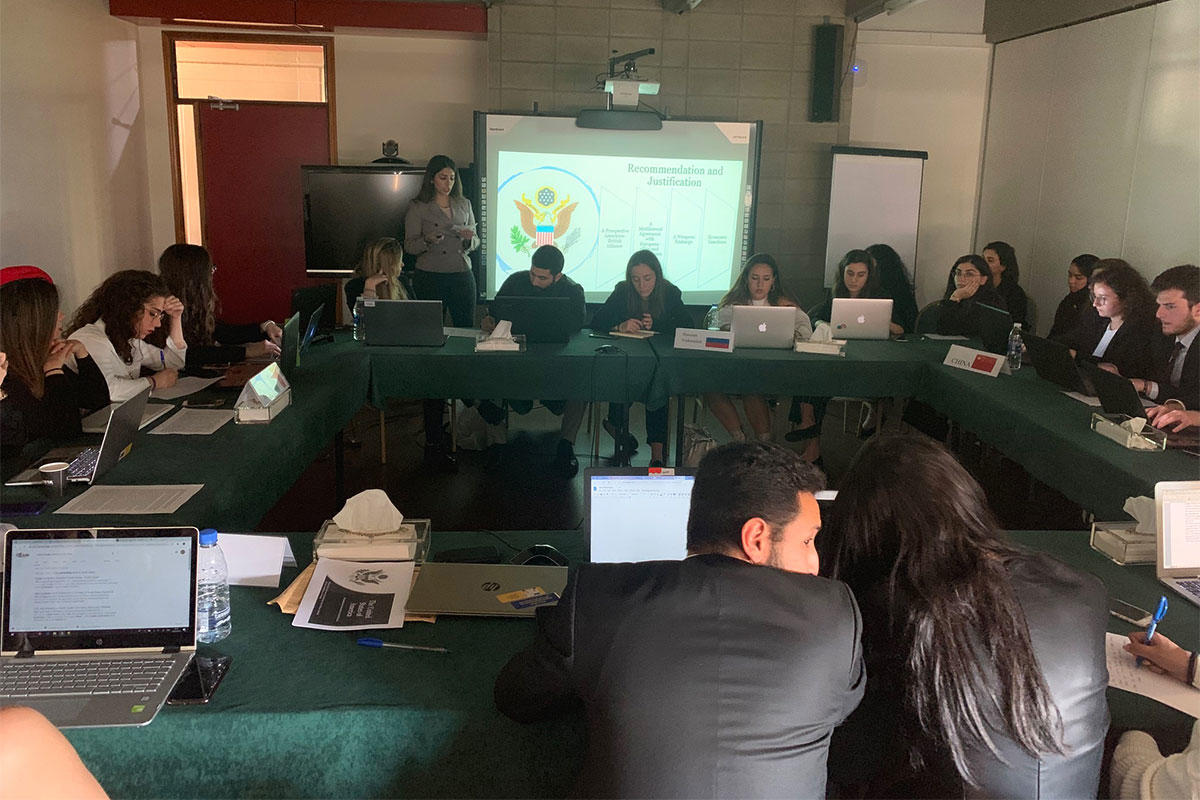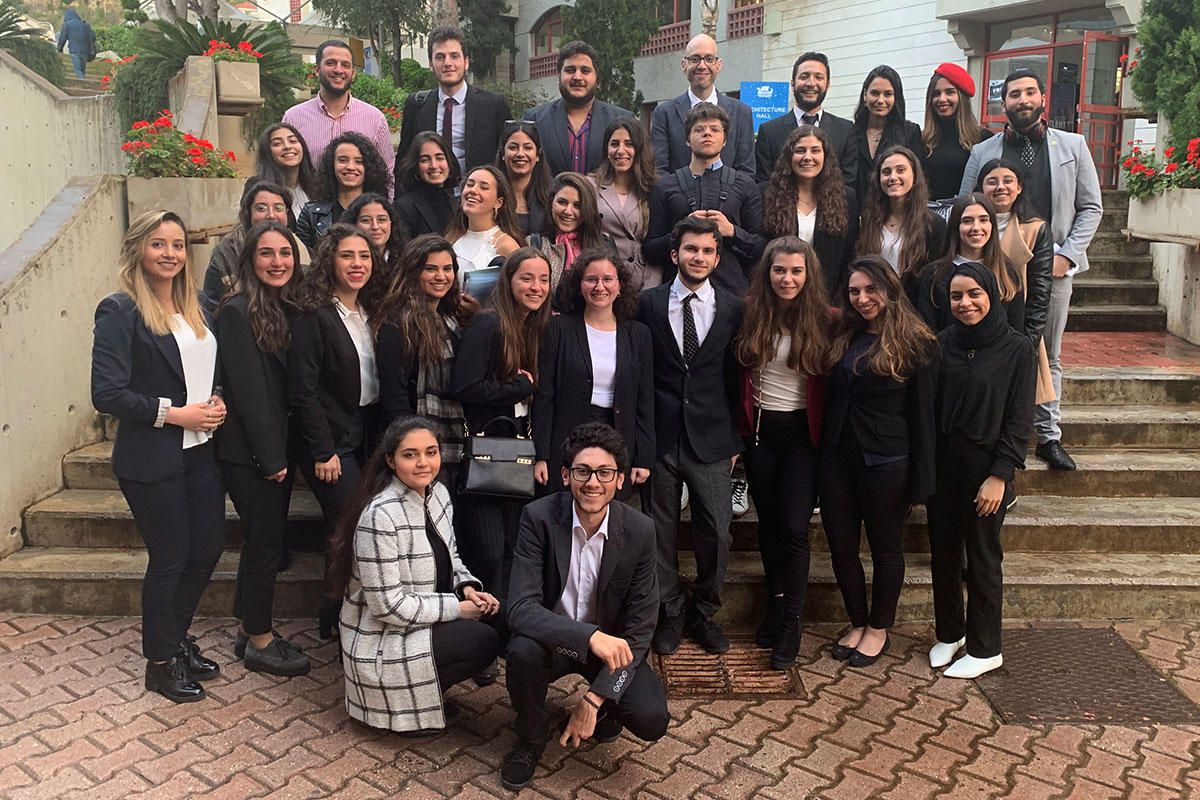Students Take On South Sudan War
Simulation exercise gives International Relations students the chance to tackle some of the worst present-day humanitarian crises.
International Relations students experienced what it would be like to be part of the UN Security Council (UNSC) formulating resolutions to end the South Sudan conflict in a simulation exercise designed by Assistant Professor of Political Science and International Affairs Jeffrey G. Karam.
For the exercise – which forms part of the Concepts of World Politics class – the students were divided into the five permanent members of the Security Council and tasked with gauging the consequences of humanitarian intervention in South Sudan, which has been embroiled in a civil war since 2013.
Since then, at least 400,000 people have been killed and more than a third of the country’s 12 million people displaced, according to Reuters.
“The goal is to encourage students to critically assess the most important theories, debates, and issues in international relations,” said Dr. Karam about his active learning approach, which is in line with LAU’s Third Strategic Plan (SPIII).
The teams presented arguments and counter-arguments on the role of economic sanctions, an arms embargo, and the role of great powers in ending the war.
Junior Economics and Political Science/International Affairs Student Dima Tuffaha said the exercise showed her that the UN was “not a miracle solution to all of the world’s problems because of the multitude of states and their personal interests.”
“This simulation gave us a glimpse into the struggles faced in the UN, and we attempted to look past that and reach a valid solution, all by using the concepts we learned in class and external research,” said Tuffaha, who is also minoring in Legal Studies.
Such concepts include how superpowers view issues of sovereignty and state interests, in addition to the advantages and shortcomings of international organizations, like the UN.
Each semester, Dr. Karam selects a case that reflects the most important issues and concepts covered in class to be fleshed out in a real-life situation.
By having to use specific terms in a real-life crisis, Dr. Karam said, the students learn to “think through the potency and weakness of these debates and how concepts in their readings, lectures, and exams have genuine impact beyond the classroom.”
Active learning, he continued, “informs their strategic thinking, planning, teamwork and innovation in the real world.”
Outlining each country’s strategy to end the war, some teams argued for interventionist policies through the use of force, economic sanctions or an embargo, while others advocated for increased collaboration through institutions to mitigate the humanitarian crisis.
Nabil Fares, a senior in Political Science and International Affairs, said the simulation allowed him to “step into the shoes of the world leaders we so frequently study about in our daily coursework.”
Fares was representing the People’s Republic of China, and one of the main challenges he faced was “the duty to advance a balanced approach that reconciles between Chinese economic interests that are rooted in South Sudan on the one hand, and the need to restore political stability and basic human rights to the country on the other. That is the basis on which my team and I constructed our arguments.”
After each presentation, the delegations prepared rebuttals to others’ strategies. The teams later went into breakout sessions to consider and then propose a UNSC Resolution to the Security Council permanent members.

